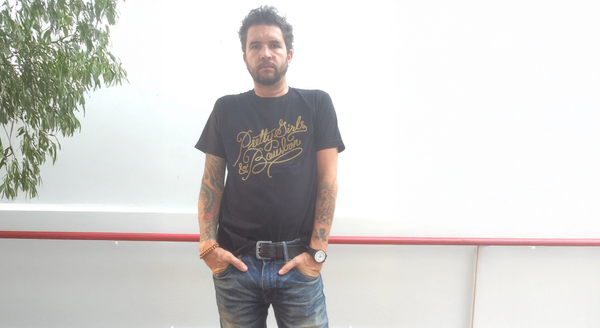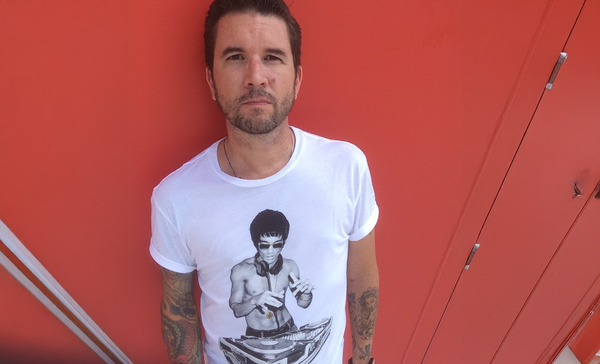Explainer Mode Is Lazy Marketing
Why Telling Us How It Works Isn’t the Same as Telling Us Why It Matters

Something in Matt Gee's recent article really rang a bell.
He called out a familiar marketing habit, what he calls “explainer mode.” It’s when brands, especially in tech, default to carefully walking audiences through how something works, rather than why it matters.
And here’s the thing: explainer mode isn’t new. It’s been the dominant tone of innovation marketing for years.
And that’s the problem.
We’ve spent a decade obsessed with frameworks, toolkits, and feature sets. By proving we’re smart by showing the wires and diagrams behind the magic. Somewhere along the way, we mistook clarity for connection and mechanism for meaning.
But as we enter a new era shaped by AI, automation, and acceleration, that old habit is starting to crack. Because people aren’t asking “How does this work?”
They’re asking:
- “Where does this leave me?”
- “What’s my role in this future?”
- “How does this make me feel more human not less?”
Explainer Mode Is a Kind of Mansplaining
Let’s name it for what it often is: Explainer mode can be a subtle form of disrespect. It assumes the audience doesn’t get it. That they need to be walked through the basics. That understanding the mechanism is more important than seeing the meaning.
Explainer mode behaves a lot like mansplaining - overconfident, under informed, and deeply misaligned with the actual needs of the listener.
This is especially damaging when we interact with people in the Epilogue Economy - those navigating reinvention, caregiving, post-career transitions, or second acts. People who have decades of experience. Who’ve seen hype cycles rise and fall. Who’ve adapted again and again.
They’re not confused. They’re selective. They don’t need you to explain the thing. They need to know if the thing respects their time, experience, and identity.
Of course, there’s value in helping people understand what’s new. But understanding isn’t the goal. The goal is belonging. Relevance. Recognition. Fit. They don’t want a user manual. They want to know if this innovation can live with them in the life they have today, or the one they’re building next.
From Explaining to Embodying
The real challenge for marketers now isn’t to simplify the message. It’s to embody the meaning. That means moving from telling people how it works to showing how it fits. From product-led storytelling to life-led integration. From discussing features to exploring futures — uncertainty, ambition, reinvention, and trust.
That shift requires a different kind of confidence. The kind that trusts your audience is capable. That doesn’t condescend. That understands the context they’re in, not just the funnel you’ve built.
That’s what the Epilogue Economy demands. Not more explanations but more recognition. Not more content but more context. Because people in transition don’t want a product demo. They want to know:
“Will this help me live the next version of my life more fully?”
All Eyes on Gen Z. No Imagination for Anyone Else.
Marketing is obsessed with Gen Z.
Entire playbooks are built around their values, memes, platforms, slang, and subcultures. We segment them to death. We celebrate their fluency. We treat them as the future — even when they haven’t yet arrived at full earning power.
However, when it comes to older, more experienced audiences, those with the money, influence, and life experience, we suddenly lose our imagination. Instead of curiosity, we settle for familiarity. Instead of inspiration, we give them steps, not stories. We design bold campaigns for digital natives. But for experienced consumers? We default to explainer mode as if they’re always catching up, never leading.
This isn’t just lazy marketing. It’s condescending. It reveals a blind spot, one that’s costing brands both relevance and respect.
Because the people we’re overlooking are the very ones who’ve led multiple waves of transformation in careers, industries, and culture, they don’t need a breakdown of how the tech works. They need an invitation to see where the next products, services, and innovations fit into what’s next in their lives.
Explainer Mode Isn’t Just Insecure. It’s Indifferent.
Matt Gee was right to call explainer mode a symptom, but maybe it’s not insecurity.
Maybe it’s something worse: no one cares enough to aim higher.
In too many boardrooms, the Epilogue Economy is still treated like a drop-down menu.

As if someone navigating an empty nest, a cancer diagnosis, a late-life startup, and a sabbatical year is all the same person. As if the only thing worth targeting is their age, not their ambition, transition, or agency.
So we reach for the easy thing. Explain the mechanism. Avoid the person. Use polite language, soft colors, and assume no fluency, digital or otherwise. This isn’t just a missed emotional connection. It’s a complete lack of narrative imagination.
And that lack has a cost.
It means brands are missing the single most valuable creative brief in marketing today: how to speak to people who are rewriting the rules of success, identity, ambition, and belonging in real time.
The Epilogue Economy isn’t one segment. It’s millions of people in motion. They’re not aging out. They’re leveling up, starting companies, taking sabbaticals, becoming caregivers, moving countries, and reimagining their lives.
They don’t need marketing that slows them down. They need marketing that catches up. By treating them as a checkbox, we miss the real opportunity to become a companion in the most meaningful chapter of their lives, not just another voice talking over it.
The Epilogue Economy is still driving culture. It is reshaping markets. It is defining what’s next.
It deserves more than an explanation.

If you’re ready to stop talking at experienced audiences and start building real resonance let’s work together.
At RockPaperScissors, we understand that The Epilogue Economy isn’t a trend. It’s the most under-imagined growth market of our time and a creative frontier for brands ready to lead with meaning, not mechanism.
Field Notes on The Epilogue Economy™ is a reader-supported publication. To receive new posts and support my work, consider becoming a free or paid subscriber.



